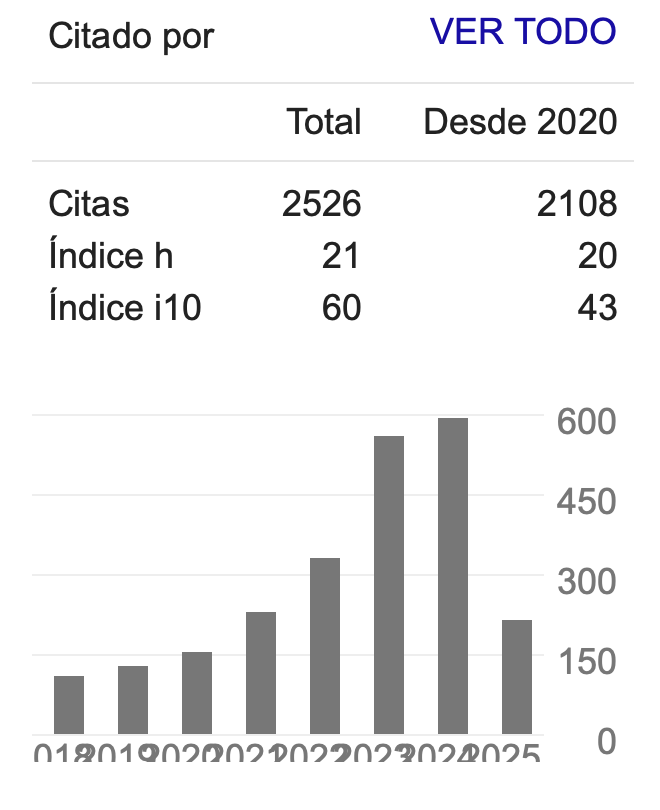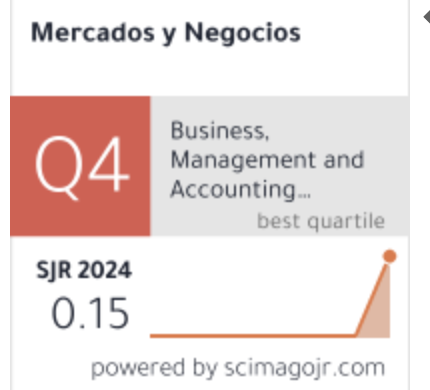Comunidades mexicanas en EU e inversión en México. Un estudio exploratorio
DOI:
https://doi.org/10.32870/myn.v0i21.5146Keywords:
diásporas, comunidades mexicana, iedAbstract
El presente trabajo analiza las actitudes generales de inversión en México de la población mexicana en eu, buscando precisar la intención de inversión en México por parte de aquellos individuos de origen mexicano con mayores niveles de ingreso. Los resultados muestran un interés aparente por realizar inversiones en México aun cuando estas inversiones impliquen rendimientos menores a los de mercado. Se plantea que las comunidades mexicanas en eu pueden efectivamente convertirse en poblaciones objeto de políticas de atracción de inversión extranjera directa (ied) a México. Asimismo, no se aprecia que exista una percepción de ventajas étnicas para la inversión en México por parte de los entrevistados. Los resultados muestran que cualquier política de atracción de inversiones dirigidas a las comunidades mexicanas en eu implica necesariamente una mejora en los niveles de inseguridad y corrupción existentes en el paísReferences
Adamson, F. (2008, March). Constructing the diaspora: diaspora identity politics and transnational social movements. In 49th Annual Conference of the International Studies Association, San Francisco, CA.
Alesina, A., & Ferrara, E. L. (2005). Ethnic diversity and economic performance. Journal of economic literature, 43(3), 762-800.
Basler, C. R.,(2004)“Political Influences. Personal Outcomes: Mexican American Identity Dilemmas in California” en Amherst College, Inédito.
Burton, B. (2007). Qualitative research in finance-pedigree and renaissance.Studies in economics and finance, 24(1), 5-12.
Clegg, J., & Wang, C. (2004). The impact of inward FDI on the performance of Chinese manufacturing firms. In The Challenge of International Business (pp. 198-219). Palgrave Macmillan UK.
Chiteji, N. S., & Stafford, F. P. (1999). Portfolio choices of parents and their children as young adults: Asset accumulation by African-American families.The American Economic Review, 89(2), 377-380.
Cobb‐Clark, D. A., & Hildebrand, V. A. (2006). The wealth and asset holdings of US‐born and foreign‐born households: Evidence from sipp data. Review of Income and Wealth, 52(1), 17-42.
Creswell, J. W. (1998). Qualitative research and inquiry design: Choosing among five traditions.
Daniel, K., Hirshleifer, D., & Teoh, S. H. (2002). Investor psychology in capital markets: Evidence and policy implications. Journal of monetary economics,49(1), 139-209.
Lucey, B. M., & Dowling, M. (2005). The role of feelings in investor decision‐making. Journal of economic surveys, 19(2), 211-237.
Gillespie, K., Riddle, L., Sayre, E., & Sturges, D. (1999). Diaspora interest in homeland investment. Journal of International Business Studies, 30(3), 623-634.
Gutiérrez, C. G. (1999). Fostering identities: Mexico's relations with its diaspora. The Journal of American History, 86(2), 545-567.
Gould, D. M. (1994). Immigrant links to the home country: empirical implications for US bilateral trade flows. The Review of Economics and Statistics, 302-316.
Yasheng, H., & Khanna, T. (2003). Can India Overtake China?. Foreign Policy,137(7), 74-81.
Javorcik, B. K. S. (2006). Migrant Networks and Foreign Direct Investment(Vol. 4046). World Bank Publications.
Lapointe, M. (2004). Diasporas in Caribbean Development: Rapporteur's Report. Inter-American Dialogue.
Loewenstein, G. F., Weber, E. U., Hsee, C. K., & Welch, N. (2001). Risk as feelings. Psychological bulletin, 127(2), 267.
Long, S. (2005). A Survey of India and China: The Insidious Charms of Foreign Investment. The Economist, 5, 7-9.
Minoian, V., & Freinkman, L. (2006). Diaspora's Contribution to Armenia's Economic Development: What Drives the First Movers and How Their Efforts Could Be Scaled Up?. Diaspora Networks and the International Migration of Skills.
Mundra, K. (2005). Immigration and international trade: A semiparametric empirical investigation. The Journal of International Trade & Economic Development, 14(1), 65-91.
Nunnenkamp, P., & Spatz, J. (2002). Determinants of FDI in developing countries: has globalization changed the rules of the game? (Vol. 1122). Germany: Kiel Institute for World Economics.
Odean, T. (1998). Are investors reluctant to realize their losses?. The Journal of finance, 53(5), 1775-1798.
Ogden, D. T., Ogden, J. R., & Schau, H. J. (2004). Exploring the impact of culture and acculturation on consumer purchase decisions: Toward a microcultural perspective. Academy of Marketing Science Review, 2004, 1.
Ono, H. (2002). Negotiating ethnic boundaries Multiethnic Mexican Americans and ethnic identity in the United States. Ethnicities, 4(1), 75-97.
Park, R. E., Janowitz, M., & Burgess, E. W. (1969). Introduction to the Science of Sociology, Including the Original Index to Basic Sociological Concepts [By] Robert E. Park and Ernest W. Burgess. University of Chicago Press.
Portes, A., Guarnizo, L. E., & Haller, W. J. (2002). Transnational entrepreneurs: An alternative form of immigrant economic adaptation. American sociological review, 278-298.
Robin, C. (1997). Global diasporas: an introduction. University College, London.
Safran, W. (1991). Diasporas in modern societies: Myths of homeland and return. Diaspora: A journal of transnational studies, 1(1), 83-99.
Saxenian, A. (1999). Silicon Valley's new immigrant entrepreneurs (Vol. 32, pp. 1991-2005). San Francisco: Public Policy Institute of California.
Smart, A., & Hsu, J. Y. (2004). The Chinese diaspora, foreign investment and economic development in China. The Review of International Affairs, 3(4), 544-566.
Stocchiero, A. (2004). Fostering Egyptian local development through diasporic networks in Italy. Rome: CeSPI.
Zhou, M. (1997). Segmented assimilation: Issues, controversies, and recent research on the new second generation. International migration review, 975-1008.
Downloads
Published
How to Cite
Issue
Section
License
Mercados y Negocios by Department of Mercadotecnia y Negocios Internacionales. University of Guadalajara is licensed under a License Creative Commons Attribution-NonCommercial 4.0 International.
The author retains the copyright.








